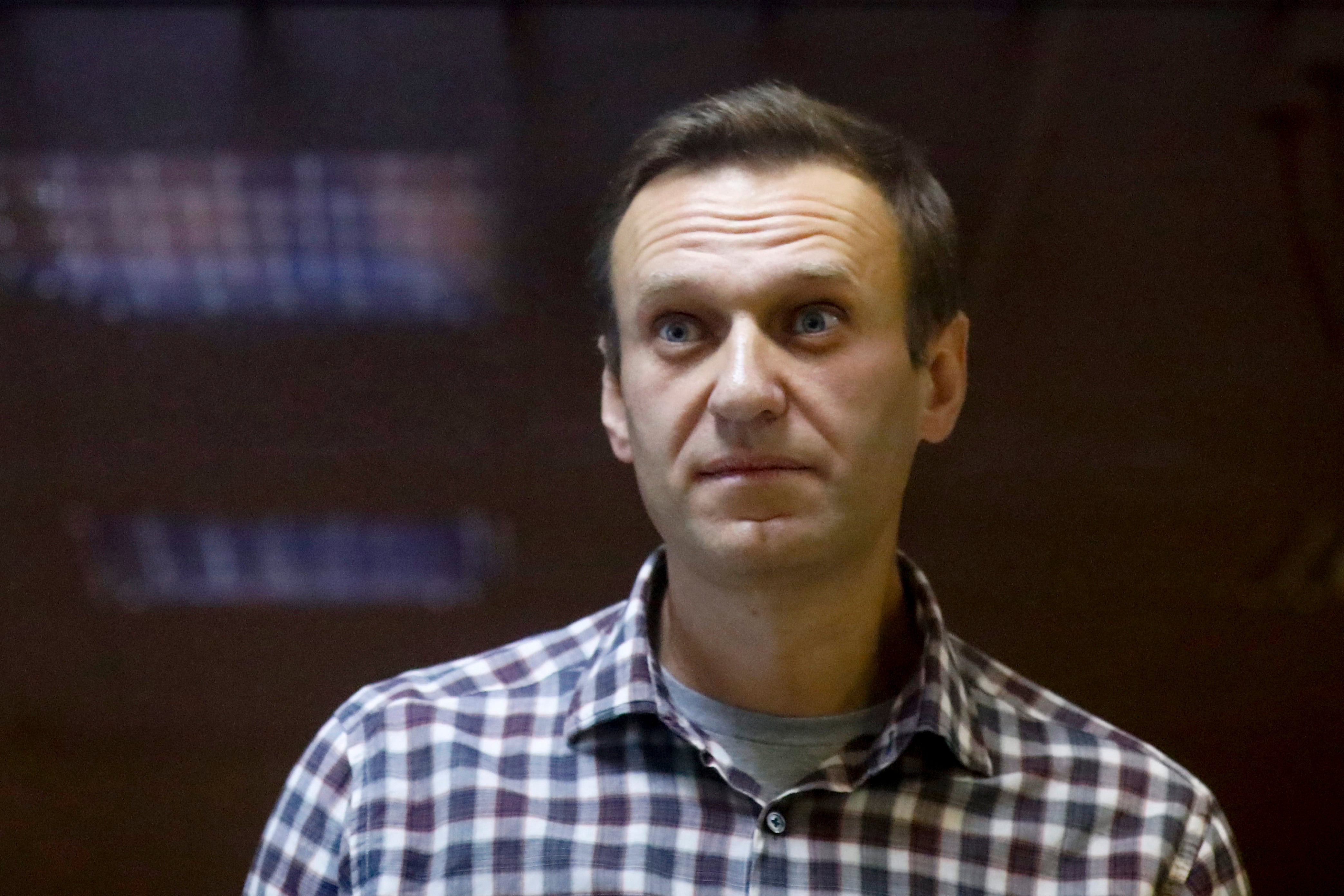Hunger-striking Navalny describes threats to force-feed him
Imprisoned Russian opposition leader Alexei Navalny has described threats to end his hunger strike by force-feeding him using a “straitjacket and other pleasures.”

Your support helps us to tell the story
From reproductive rights to climate change to Big Tech, The Independent is on the ground when the story is developing. Whether it's investigating the financials of Elon Musk's pro-Trump PAC or producing our latest documentary, 'The A Word', which shines a light on the American women fighting for reproductive rights, we know how important it is to parse out the facts from the messaging.
At such a critical moment in US history, we need reporters on the ground. Your donation allows us to keep sending journalists to speak to both sides of the story.
The Independent is trusted by Americans across the entire political spectrum. And unlike many other quality news outlets, we choose not to lock Americans out of our reporting and analysis with paywalls. We believe quality journalism should be available to everyone, paid for by those who can afford it.
Your support makes all the difference.Imprisoned Russian opposition leader Alexei Navalny who has been on hunger strike since March 31, on Friday described threats to force-feed him, using “straitjacket and other pleasures.”
In an Instagram post, Navalny said an official told him that a blood test indicated his health was deteriorating and threatened to force-feed him if he continues to refuse to eat.
“And then she detailed the joys of force-feeding to me. Straitjacket and other pleasures,” the politician said, adding that he urged the officials not to do it, “pointing to a clause in the law.”
Navalny, President Vladimir Putin s most vociferous critic, is demanding a visit from his physician after developing severe back pain and numbness in his legs in prison.
The 44-year-old opposition leader was arrested in January upon his return from Germany where he had spent five months recovering from a nerve agent poisoning he blames on the Kremlin — accusations Russian officials have rejected. Navalny's arrest triggered a massive wave of protests all across Russia, the biggest show of defiance in recent years.
Soon after the arrest, a court ordered Navalny to serve 2 1/2 years in prison on a 2014 embezzlement conviction he said was fabricated and the European Court of Human Rights deemed to be “arbitrary and manifestly unreasonable.” Last month, the politician was transferred to a penal colony east of Moscow notorious for its harsh conditions.
Navalny has complained about back pain and said he was losing sensation in his legs. His demands for a doctor's visit were rebuffed by prison officials, with Russia's state prison service saying he was getting all the medical help he needed. In response, Navalny went on hunger strike.
The opposition leader charged Friday that prison officials refused to let his physician in because “they fear it'll transpire that the loss of sensation in the limbs may be connected to the poisoning," and reiterated he had “an absolutely guaranteed right: to be examined by an independent civilian doctor.”
Describing his state after more than two weeks of a hunger strike, Navalny said his head was "spinning a lot,” but that he was “still walking."
Navalny's wife, Yulia, who visited him in prison earlier this week, said the politician was “cheerful” but had trouble talking and lost a lot of weight.